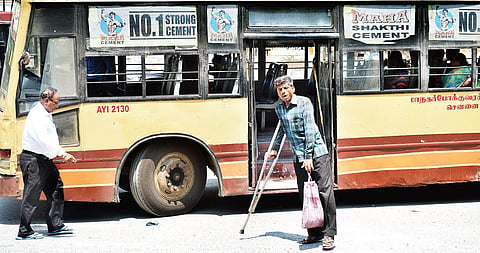

BENGALURU: Healthcare centres in Bengaluru and Kalaburagi exhibit significant shortcomings in catering to the needs of Persons with Disabilities (PwD).
The findings of a study conducted by the National Centre for Promotion of Employment for Disabled People (NCPEDP), in New Delhi, revealed the absence of disability-friendly toilets in hospitals, lack of essential accessibility features such as ramps, railings and assistive aids at Primary Health Centres (PHCs).
Further, the study highlighted that adults with intellectual disabilities encounter difficulties in authenticating Aadhaar due to their inability to cooperate and provide thumb impressions.
Participants highlighted several key barriers to accessing healthcare services in Bengaluru, including accessibility issues such as inadequate infrastructure and facilities tailored to the needs of individuals with disabilities, including the absence of disabled-friendly toilets, insufficient ramps, and a shortage of wheelchairs.
The study reflected on attitudinal barriers, with personnel often neglecting individuals with disabilities, highlighting the need for sensitization and training. Information and communication challenges also were raised by participants due to limited signage in accessible formats, hindering navigation for those with visual impairments.
Participants also highlighted that they encounter significant challenges related to transportation as high costs pose a major obstacle, with many participants stating the expense of transportation services as a “significant burden”. Moreover, accessibility and disability-friendly options are lacking, as reported by multiple participants. The available transportation choices often fail to meet the needs of individuals with disabilities, indicating a pressing need for more accommodating and inclusive transportation solutions in the city.
The study also reflected on affordability concerns due to the high costs associated with medical treatment, medication and assistive devices, placing significant financial strain on individuals and their families.
As per the findings, addressing these challenges requires a comprehensive approach that involves implementing targeted policies, investing in infrastructural improvements and engaging in inclusive healthcare planning.